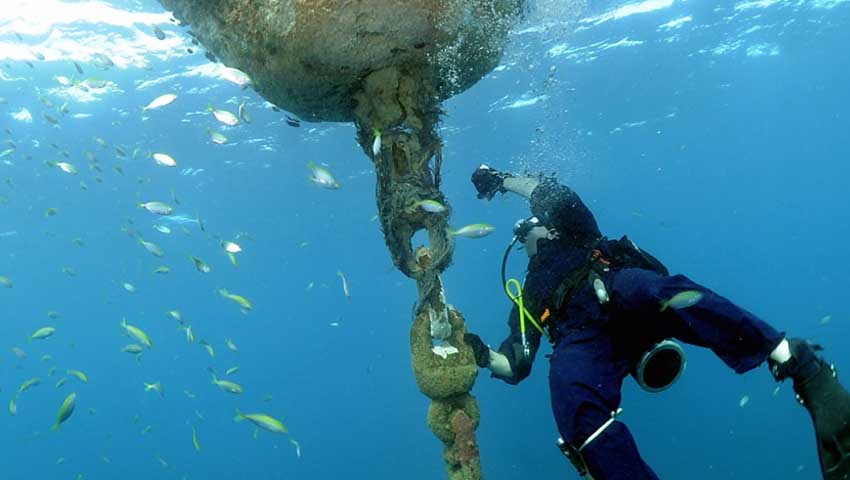The Mine Warfare and Clearance Diving Officer (MCDO) course – often referred to as the Navy’s “most challenging specialist program” – has graduate three new officers this month.
To continue reading the rest of this article, please log in.
Create free account to get unlimited news articles and more!
Lieutenants Samantha McKay, Matthew Smith and Joe Woods were awarded their qualification badges by the Fleet Commander, Rear Admiral Jonathan Mead, himself the RAN's most senior MCDO.
After 78 weeks of gruelling training, the graduates can now be employed across the globe delivering a specialist maritime warfighting capability in the joint environment.
Acting Officer-in-Charge of the ADF Diving School, Lieutenant Matthew Rayner, said the graduates had worked well as a team and excelled in all aspects of their training. He noted that the course is a challenge, but the graduates are a symbol of how team work and resilience were key to overcoming obstacles.
"The mental resilience and maturity required to make it as an MCDO should not be understated," he said.
“Our three newest MCDOs have proven that not only can they meet the physical demands that come with working day or night, in depths of more than 50 metres, but that they can also lead a team while doing so.
“They will lead sailors in implementing mine countermeasures, underwater damage repair, expeditionary reconnaissance and clearance, and explosive ordnance disposal, which is a significant responsibility.”
LEUT Woods and LEUT McKay will join Clearance Diving Teams One and Four, respectively; while LEUT Smith will join the minehunter HMAS Yarra.
For LEUT Smith, becoming an MCDO has been a career-long ambition.
“I joined the Navy in 2010 and becoming an MCDO has been a goal since then,” he said.
“The Expeditionary Reconnaissance and Clearance phase is definitely is the most mentally and physically draining part of the course, but having passion for the job and the camaraderie you build helps when you’re training over such long hours. If it wasn’t tough, it wouldn’t be worth doing.
“I’m looking forward to joining Yarra and becoming part of the ship’s Diving Team.”
Formally established almost 70 years ago, the Navy’s Clearance Diving Branch has seen operational service around the world including in Vietnam, East Timor, Kuwait, Iraq and Afghanistan; and on counter-terrorist service in Australia.

 Login
Login







